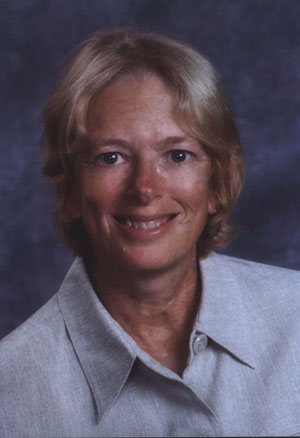

The 8th Annual Niro Lecture and Luncheon:
Each year, an influential figure in IP/IT addresses faculty, students, and area attorneys on current IP/IT issues. This year, the Annual Niro Distinguished Intellectual Property Lecture will feature Pamela Samuelson, Professor of Law and Information Management; Chancellor's Professor; Director, Berkeley Center for Law & Technology; University of California, Berkeley Boalt Hall School of Law.
The Niro Luncheon and Lecture will be held on October
14th, from Noon to 1:15 in the DePaul Center, Room 8005. If you wish to attend only the Niro Lecture and
Luncheon, please visit the Symposium
registration page. The Niro Luncheon is $15. Discounted rates
for DePaul faculty, staff, and students are detailed on the
registration page.

Professor Pamela Samuelson, JD
Pamela Samuelson is a Chancellor’s Professor of Law and
Information Management at the University of California at Berkeley.
She is a Director of the Berkeley Center for Law & Technology, as
well as an advisor to the Samuelson High Technology Law & Public
Policy Clinic at Boalt Hall. She teaches courses on intellectual
property, cyberlaw and information policy. She has written and
spoken extensively about the challenges that new information
technologies pose for traditional legal regimes, especially for
intellectual property law. She is a Fellow of the Association for
Computing Machinery (ACM) and a Contributing Editor of
Communications of the ACM.
A 1971 graduate of the University of Hawaii and a 1976 graduate of
Yale Law School, Samuelson practiced law as a litigation associate
with the New York law firm Willkie Farr & Gallagher before turning
to more academic pursuits. From 1981 through June 1996 she was a
member of the faculty at the University of Pittsburgh Law School,
from which she visited at Columbia, Cornell, and Emory Law Schools.
She has been a member of the Berkeley faculty since 1996.
Niro Lecture: "Is Privacy Possible in Pervasive Computing Environments?"
Abstract:
As computing devices designed to sense physical phenomena become
tinier, more capable of internal power generation, and better able
to broadcast data and self-organize in networks, pervasive computing
environments employing sensor networks may become the “next new
thing.” Motes embedded in the tires of your car may be programmed,
for example, to let you know if the tire pressure is low; those
embedded in the walls of your home may adjust heat and/or lighting
systems to minimize electrical consumption; and those deployed in
public squares may detect pollution levels or other hazardous
contaminants and transmit signals to warning systems as needed.
The United States presently has no legal infrastructure to safeguard
privacy interests of individuals in data sensor networks may gather
and process about them. While fair information practices have
provided a general framework for information privacy in the online
world (e.g., informing firms about constructing privacy policies for
their websites), these practices may be difficult to map onto sensor
network technology. Fair information practices, for example,
typically require notice to persons affected that information about
them is being collected and for what purpose, as well as consent to
collection of the data for such a purpose. As sensors become
pervasively embedded in every day life, notice and consent may no
longer be feasible.
This presentation will explore the role legislation and policy ought
to play in protecting information privacy of persons in sensor
network environments and in regulating the technologies that enable
surveillance of persons via sensor networks. Developers should be
encouraged, and perhaps even required, to build some
privacy-protection capabilities into sensor network technologies in
order to preserve the important social values information privacy
protects.
Previous Niro Lecturers:
The Honorable Richard A. Posner (October 15, 2003), U.S. Courts of Appeals, 7th Circuit.
David Nimmer, Of Counsel, Irell & Manella, LLP (April 3, 2003).
Jane C. Ginsburg (2002), Morton L. Janklow Professor of Literary and Artistic Property Law, Columbia Law School
Q. Todd Dickinson (2001), Director of the United States Patent & Trademark Office; former Under Secretary of Commerce for Intellectual Property
J. Thomas McCarthy (2000), Professor of Law, University of San Francisco
Richard Masur (1999), actor and former President of the Screen Actors Guild, and John Lavely (1999), Lavely & Singer, Los Angeles
Judge Randall Rader (1998), Court of Appeals for the Federal Circuit